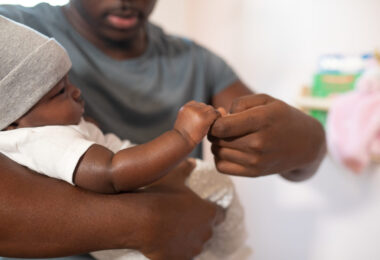Following divorce or separation, it is much more common, that children end up living with their mothers, and fathers are then left to seek contact. Despite the Courts paying lip service to children’s needs to maintain a relationship with both parents, invariably it is the father who sees significantly less of his children than the mother.
Charlotte Friedman, the founder of Divorce Support Group www.divorcesupportgroup.co.uk – an organisation which helps make separation manageable, and a psychotherapist specialising in the emotional impact of divorce and separation, looks at the impact on fathers and children when divorce becomes a factor.
All it takes is for a mother to feel ambivalent about contact for it to become extremely difficult for a father to see his children regularly. This can be devastating for many men who, despite their best intentions, are at the mercy of ex-wives who fail to encourage contact and can make any communication with the children very difficult. Even if there is a regular schedule in place for contact, it is fathers who suffer a greater loss. Each contact can seem like leisure time rather than real every day time. Fathers need to make each weekend or overnight stay count, so that their children will want to come again. Although mothers can feel resentful that they have to share their children and feel lost when they are away, it is fathers who miss out on the daily routine and detail of their children’s lives.
Whatever the rights and wrongs of the break up, the biggest impact for fathers is on the struggle to stay a significant person in a child’s life. The best way of keeping that relationship alive is to renegotiate the relationship with the ex, so that any hostility is not played out through the children. Men feel punished by losing out on the children and women feel angry that they have to share the children with someone they feel hurt by. It’s an impossible situation, but what is absolutely clear is that children need their fathers.
They need to know they are still loved by both their parents and as they are made up of half of each of their parents, they need to feel that both are valued, so that they feel cherished. Legislation which sets out clearly that a child has a right to a relationship with both parents doesn’t go far enough in dealing with the thousands of families where fathers are pushed to the edges and marginalised. Sadly, courts make contact orders but seem not to follow them through when they are breached. That means that despite a fathers best endeavours, if a child is kept away from contact by a mother, there is not a lot that he can do. Children who are lucky enough to have fathers, need them. The role of fathers in our society is not supported sufficiently by the Courts or by Government. It is the voice of father’s rights groups that have put this issue on the map and at least now there is awareness that there is a problem. Awareness though is only the start, there needs to be some robust addressing of the issue so that children get the relationships they deserve and fathers can come out of the shadows and play a central role.
For many fathers, not being able to see their children or seeing them minimally makes them feel powerless and helpless. The Courts are unhelpful and appealing to the better nature of their ex often doesn’t work. If there is any advice to be given, then where it is in someone’s power to do so, try to break up with as little acrimony as possible and to remain amicable, so that, as with some worst case scenarios, you are not so at the mercy of someone else’s decision making. It is not easy to do, but sometimes it seems that it is the only way to try to avoid the children being used as a weapon against the non-resident parent.
The Facts – According to Fathers 4 Justice
1 in 3 children now grows up without a father
Half of all contact orders for fathers are broken
94% of residencies are awarded to mothers








